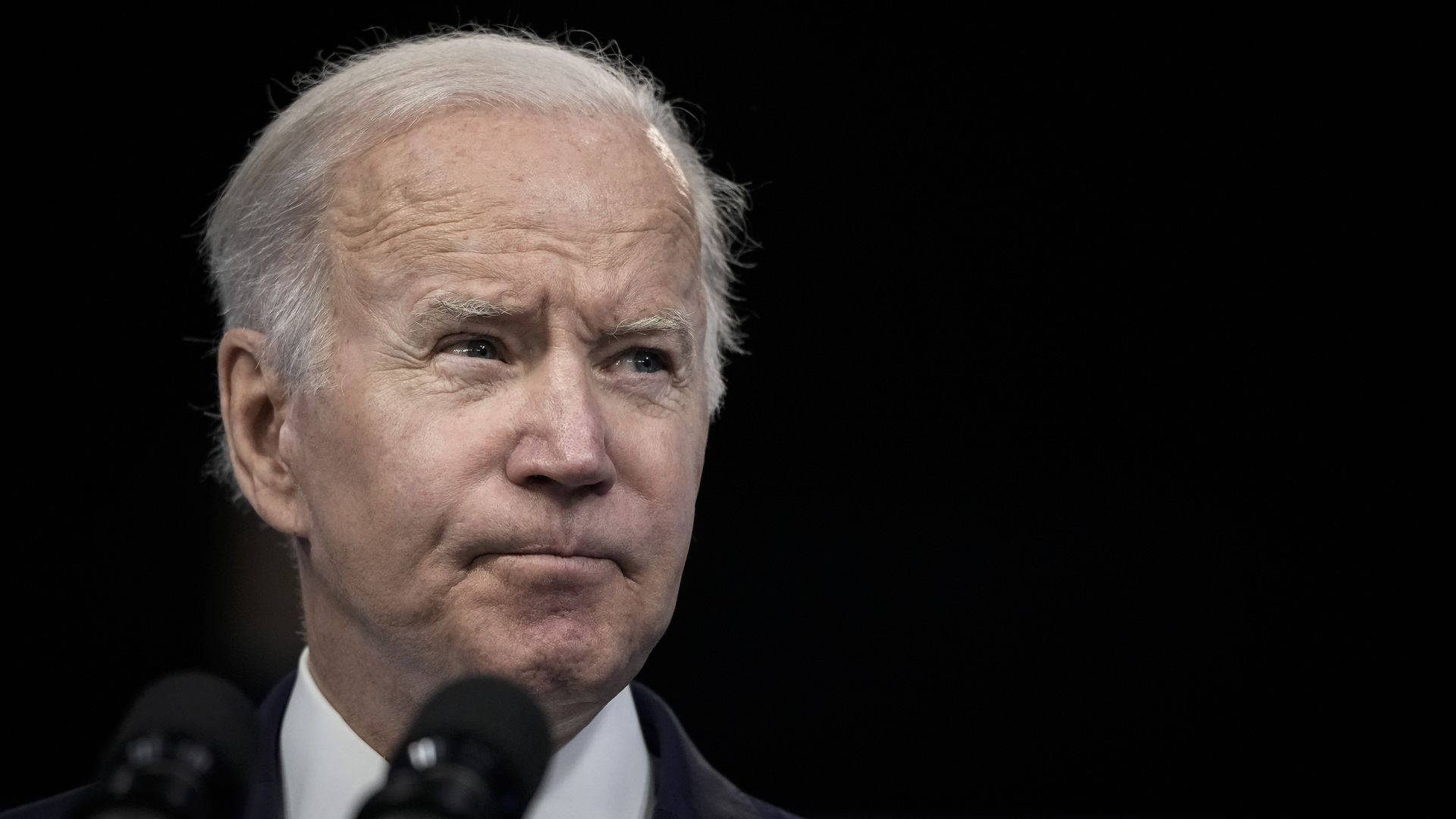CBO: Deficits are falling now, are set to soar later
Add Axios as your preferred source to
see more of our stories on Google.

President Biden speaking about inflation and the economy earlier this month. (Photo by Drew Angerer/Getty Images)
The federal government's budget deficit is expected to shrink this year before skyrocketing in the years ahead, the Congressional Budget Office (CBO) said Wednesday.
Why it matters: America's reprieve from climbing deficits is only temporary as coronavirus-related government spending wanes and tax revenues increase.
By the numbers: The CBO projects the budget deficit will shrink to $1 trillion this year, down from $2.8 trillion in 2021. It's expected to rise to more than $2 trillion in 2032, reaching 6.1% of GDP, up from a projected 4.2% this year.
- Federal debt held by the public is estimated to dip from 100% of GDP at the end of this year to 96% in 2023, reflecting rapid inflation that is causing GDP to expand more rapidly. It's expected to reach 110% of GDP — the highest ever recorded — by the end of the decade.
Details: The CBO is now expecting higher interest rates over the coming years than it did in the last forecast, as the Federal Reserve acts to try to contain inflation. Higher interest rates would strain the nation's fiscal position further.
- Last July, for example, the CBO projected that the 10-year Treasury yield would average 2% in 2023; now that projection is 2.9%.
- In the CBO projections, interest costs alone will pass $1 trillion in 2030, nearly doubling as a share of the economy to 3% of GDP, from 1.6% last year.
In its economic projections, both growth and inflation decelerate rapidly in the coming years. GDP slows from 5.5% last year to 1.5% in 2024, while inflation for personal consumption expenditures falls from 5.5% to 2.1%.
- Those numbers are consistent with the economy coming in for a soft landing, not falling into recession, as many commentators fear is becoming more likely.
- The CBO forecasts have the unemployment rate rising only slightly from its current ultra-low level in the next couple of years.
The caveat: The CBO projections are based on current law, which is certain to change, and on economic forecasts, which are highly uncertain. The actual pathway for the economy, deficits and debt remains uncertain.
The bottom line: Higher rates mean that deficits may act as a constraint on lawmakers in a way they haven't over the last decade.

